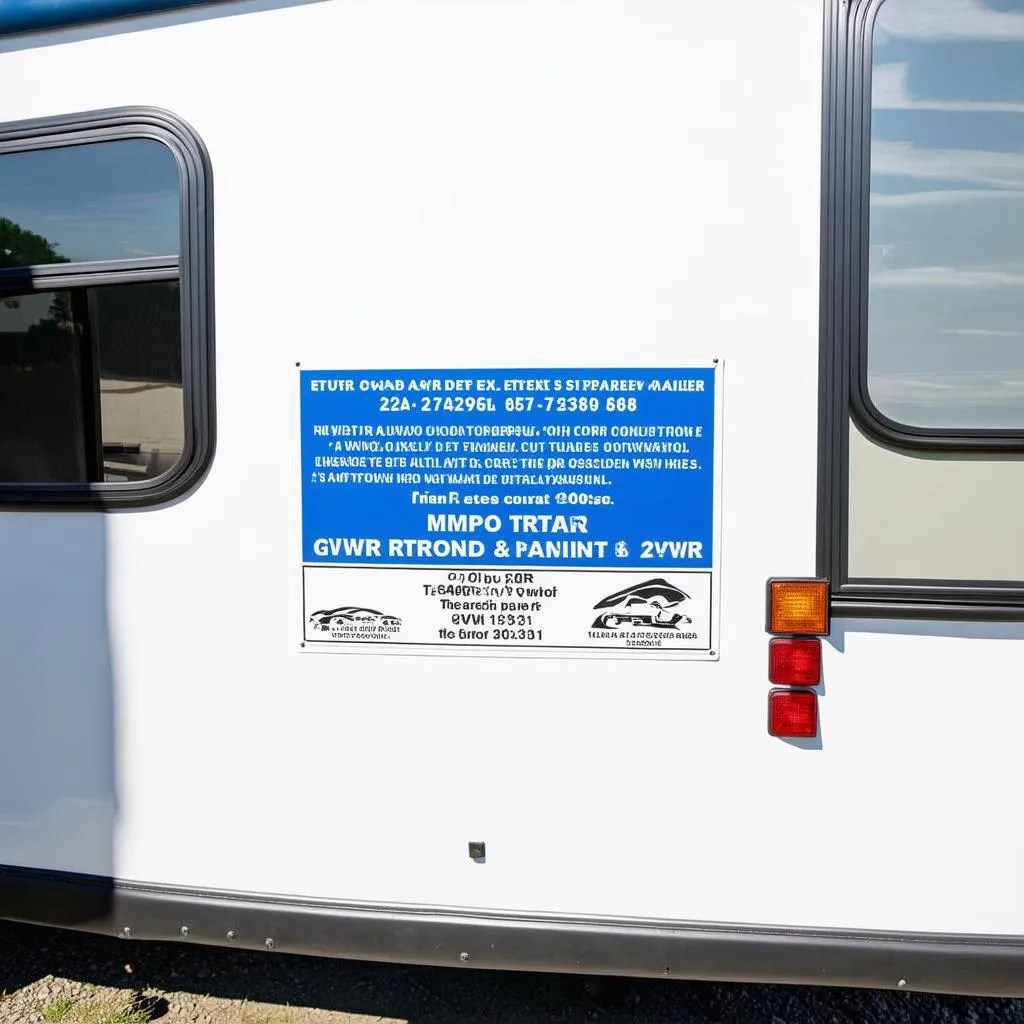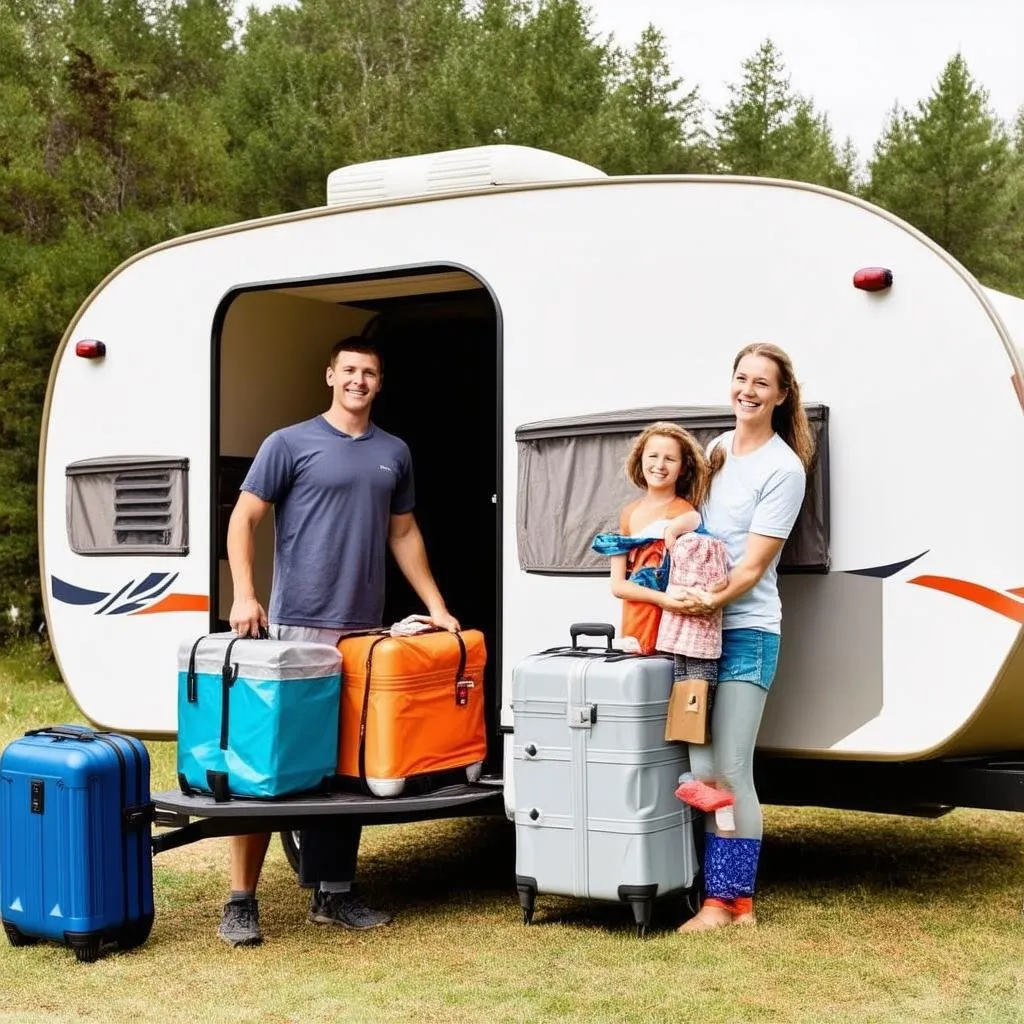Remember that epic road trip across Route 66 you’ve always dreamt of? The wind in your hair, the open road ahead, and the freedom of your own home on wheels? That dream hinges on understanding the nitty-gritty, like “GVWR” on your travel trailer. Don’t worry, it’s less intimidating than it sounds!
Deciphering GVWR: Your Trailer’s Safety Net
GVWR stands for Gross Vehicle Weight Rating. It’s the maximum safe weight your trailer can handle, including its own weight (empty) and everything you load inside (cargo weight). This includes:
- Water: A full freshwater tank can add significant weight.
- Propane: A standard propane tank can weigh around 30 pounds when full.
- Gear: This includes everything from camping chairs and cookware to bikes and kayaks.
- Personal Belongings: Clothes, toiletries, food, and everything else you bring along.
Think of GVWR as your travel trailer’s safety limit, like a weight limit on an elevator. Exceeding it can lead to:
- Tire blowouts
- Axle damage
- Loss of control
- Increased braking distance
“Ignoring your GVWR is like setting off on a mountain hike without checking the weather,” says seasoned traveler and author, John Miller, in his book “The Open Road Companion”. “You might get lucky, but the risks are simply not worth it.”
Where to Find Your Travel Trailer’s GVWR
You can usually find the GVWR sticker on the following:
- Federal Certification Label: This sticker, often found on the inside of a door jamb or on the frame near the hitch, also lists other important weight ratings.
- Owner’s Manual: Your trailer’s owner’s manual will clearly state the GVWR.
 Travel Trailer GVWR Sticker
Travel Trailer GVWR Sticker
Understanding Related Weight Ratings
Besides GVWR, several other weight ratings are crucial for safe towing:
- GAWR (Gross Axle Weight Rating): Maximum weight each axle can safely support.
- UVW (Unloaded Vehicle Weight): The trailer’s weight without any cargo, passengers, or fluids.
- CCC (Cargo Carrying Capacity): The maximum weight of cargo your trailer can carry, calculated by subtracting UVW from GVWR.
- Hitch Weight: The amount of weight the trailer tongue exerts on the tow vehicle’s hitch.
Planning Your Trip: GVWR and Safe Travels
Before embarking on your next adventure, consider these GVWR-related tips:
- Weigh Your Loaded Trailer: Visit a certified scale to determine your actual weight.
- Distribute Weight Evenly: Proper weight distribution ensures better handling and prevents overloading.
- Travel Light: Pack only essential items to stay within the GVWR.
- Know Your Limits: Be aware of your tow vehicle’s towing capacity, which should never be exceeded.
 Family Packing a Travel Trailer
Family Packing a Travel Trailer
FAQs about GVWR
Q: Can I upgrade my travel trailer’s GVWR?
A: While technically possible, it’s complex and involves modifications that might void warranties. It’s best to choose a trailer with a GVWR that suits your needs from the start.
Q: What happens if I exceed the GVWR slightly?
A: Even slightly exceeding the GVWR puts extra stress on your trailer and tow vehicle, increasing the risk of accidents.
Q: Does the GVWR include the weight of passengers?
A: No, GVWR refers to the trailer itself and its contents, not the passengers in your tow vehicle.
Exploring the Open Road Responsibly
Understanding your travel trailer’s GVWR is not just about numbers; it’s about ensuring a safe and enjoyable journey. By respecting weight limits and following safety guidelines, you can focus on what truly matters: making memories on the open road. Remember, the experts at TRAVELCAR.edu.vn are always here to guide you through your travel trailer journey.
For further information on travel trailers and towing safety, check out our article on “What does GVWR mean for a travel trailer?”
Now, pack your bags, hitch up your trailer, and enjoy the freedom of the open road – safely and responsibly!
